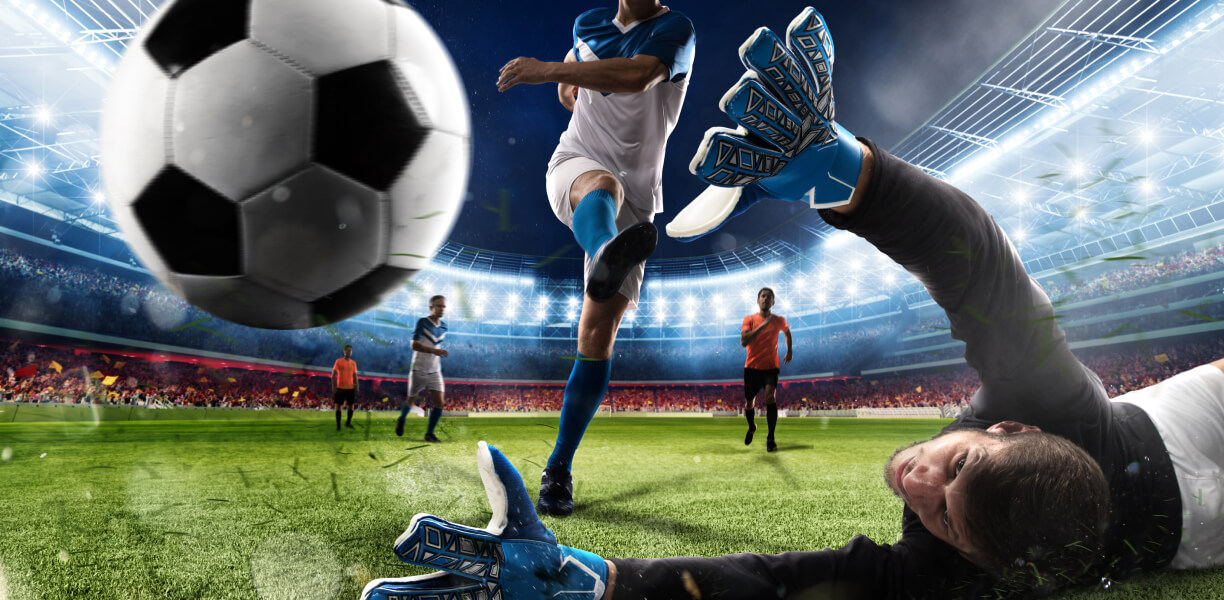In the vast realm of football, where passion and talent intertwine, a dark cloud looms over the pitch—racism.
This insidious specter continues to cast its shadow, tainting the sport we hold dear. We must confront this issue head-on, not just as casual observers, but as ardent supporters of the beautiful game.
Today, we delve into the recent incident involving Real Madrid’s rising star, Vinicius Junior, as a catalyst for change, exploring the existing efforts, evaluating their effectiveness, and proposing innovative solutions to rid football of this deeply ingrained prejudice.
Vinicius Junior, a prodigious talent on the field, found himself caught in the tumultuous crossfire of racism during a La Liga match.
The latest incident against the Brazilian star came in Real Madrid’s 1-0 loss at Valencia on Sunday, a match that had to be temporarily stopped after the forward said he was insulted by a fan behind one of the goals at Mestalla Stadium.
The torrent of abuse he faced was nothing short of reprehensible. Fuelled by frustration and determination, he took to social media, bravely declaring that “La Liga belongs to racists.” In those poignant words, he exposed the unsettling truth—racism persists within the very fabric of the competition, demanding immediate attention and concrete action.
Amidst the outcry, the governing bodies reacted, albeit with mixed results. Two fans responsible for the racial abuse faced identification and imminent stadium bans.
La Liga, in a public statement, promised a thorough investigation and the pursuit of legal action should a hate crime be confirmed.
However, Vinicius Junior’s criticism of La Liga President Javier Tebas for diverting focus away from the perpetrators sparked a necessary debate. It highlighted the shortcomings of existing measures, underscoring the need for a holistic approach.
To dismantle the foundations of racism in football, we must first acknowledge that mere identification and banning of offenders fall short of addressing the systemic nature of this issue. Reactive measures, though necessary, are insufficient in eradicating deep-rooted prejudices. Instead, we must adopt a multifaceted strategy—one that combines introspection, collaboration, and technical innovations.
One crucial aspect of tackling racism in football lies in fostering a cultural shift through education. The sport must invest in comprehensive educational programs that promote diversity, inclusivity, and respect at all levels. Clubs, federations, and leagues should lead the charge by organizing workshops, awareness campaigns, and collaborations with grassroots organizations. By cultivating empathy and nurturing a sense of unity, we can challenge and eventually dismantle the barriers that perpetuate discrimination.
Harnessing the power of technology can also play a pivotal role in combating racism. Advancements such as artificial intelligence and machine learning can be employed to monitor stadiums, swiftly detect abusive behavior, and record evidence for subsequent investigations. This proactive approach ensures that culprits are swiftly held accountable, creating a safer and more inclusive environment for players and fans alike.
Community engagement and representation are essential elements in the fight against racism in football. Clubs should actively involve local communities, forging partnerships with diverse organizations to promote inclusivity. Encouraging representation at all levels of the sport can empower marginalized voices and foster a greater sense of belonging. Embracing diversity off the field will naturally lead to greater acceptance of it.
To demonstrate unwavering commitment, governing bodies must impose transparent and consistent sanctions for racist behavior. Robust penalties, including substantial fines, lengthy suspensions, and point deductions, must be implemented. Transparent disciplinary processes ensure that no player, regardless of stature or reputation, is exempt from the consequences of their actions. Such unwavering resolve underscores the zero-tolerance approach necessary to effect real change.
Instances of racism in football are sadly not isolated incidents but rather recurring blights that tarnish the sport. From racial slurs hurled by fans to discriminatory chants and gestures, numerous players have been subjected to the deplorable effects of racism. These incidents serve as painful reminders of the persistent prejudices that still plague football.
Approximately one month ago, Romelu Lukaku, a striker for Inter Milan, was subjected to abhorrent racist abuse prior to being sent off for celebrating a goal against Juventus in the Copa Italia semifinal. Lukaku successfully converted a stoppage-time penalty, securing a 1-1 draw for Inter in the first leg. However, he received a second yellow card for gesturing with his finger in front of the home supporters in Turin.
During Lukaku’s previous tenure at Inter Milan from 2019 to 2021, he endured racial abuse. This season, Serie A has initiated investigations into instances of racist chanting by fans from various clubs. Unfortunately, there is a lack of significant sanctions in place to effectively deter such behavior.
In another case, Lazio was given a suspended punishment of a one-match stand closure due to their supporters engaging in mass anti-Semitic chanting during the Rome derby last month. Additionally, Roma, Lazio’s cross-town rivals, were fined 8,000 euros ($8,750) for their fans racially abusing Dejan Stankovic, the coach of Sampdoria.
Dejan Stankovic, a former midfielder for Red Star Belgrade, Lazio, and Inter Milan, was targeted with chants referring to him as a “gypsy” by hardcore home supporters until Roma coach Jose Mourinho intervened and demanded that they cease such behavior.
Victor Osimhen, the Super Eagles striker, recently shared his personal experience with racism in Italy. Speaking after receiving the 2022 prize for foreign athlete of the year in the country, the Napoli striker described racism as a “bad disease” that can have severe consequences, even leading someone to contemplate suicide.
Osimhen mentioned that he has not experienced racism in Naples, as the people there, regardless of race, treat each other like brothers and sisters. However, he has encountered racial abuse on two occasions in other cities.
The 24-year-old Nigerian player has faced discriminatory remarks since his arrival in Italy in 2020. One notable incident occurred at the Stadio Bentegodi stadium in 2021, where Hellas Verona fans directed monkey chants at him whenever he touched the ball. Despite this, Osimhen managed to score in that match and responded by mocking the opposing fans for their actions. He has also been subjected to racism chants from fans of Roma and Fiorentina in 2020.
The impact of racism on the game extends far beyond the individuals targeted. It permeates the very essence of football, tarnishing its reputation and undermining its core values of fair play, inclusivity, and respect. When racism rears its ugly head, it creates a toxic atmosphere that hampers the enjoyment and integrity of the sport. It diverts attention from the talent, skill, and teamwork displayed on the pitch, shifting the focus instead to hatred, division, and discrimination.
For the victims of racism, the impact is deeply personal and profoundly damaging. Discrimination can have severe psychological and emotional consequences, affecting the mental well-being and self-confidence of players. The repeated exposure to racial abuse can erode their love for the game, leading to feelings of isolation, anger, and frustration. Such experiences can hinder their performance on the field and hinder their overall development as athletes.
Moreover, racism in football sends a disheartening message to aspiring young players from diverse backgrounds. It erects barriers that make it harder for them to break through, succeed, and fulfill their potential. When talented individuals are marginalized or subjected to discriminatory treatment, it stifles the growth and diversity of the game. It deprives football of the richness that comes from embracing different cultures, backgrounds, and perspectives.
Beyond the individual impact, racism in football perpetuates harmful stereotypes and reinforces societal divisions. It normalizes discriminatory behavior and sends a message to society that racism is acceptable. This not only damages the sport but also undermines the progress made in the broader fight against racism and inequality.
To address the impact of racism on the game and the victims involved, it is imperative that football takes a proactive stance. Efforts must be made to create an environment of zero tolerance for discrimination.
Ultimately, eradicating racism from football requires a united effort from all stakeholders involved. By working together, we can create a footballing landscape that celebrates diversity, embraces inclusivity, and reflects the true spirit of the sport—a place where talent knows no boundaries and everyone can thrive, free from the shackles of discrimination.















